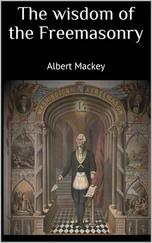This governor was a face — possibly the most ridiculous face — of the universal reign of fraud. Heykal knew him by sight, having often seen him at the municipal casino, surrounded by his most fervent supporters. They formed a sinister crowd of lackeys hovering around him and smiling earnestly at the stupidities he reeled off in an oracular tone. Heykal was so captivated by the man’s brute ignorance that he developed a true passion for him: here was someone so tragically stupid that you could only respect him for it. Magnificently and single-handedly he represented the inanity that ruled the world. Heykal was sometimes alarmed by the near-sadistic fascination he felt for him, a man who seemed to have been made governor entirely for Heykal’s own personal satisfaction. Each day brought more proof that in his initiatives and public speeches the governor dreamed of nothing so much as making Heykal happy by gratifying his sense of the absurd — as if he suspected that someone, somewhere in the city, was just waiting to rejoice over yet another nonsensical deed. As a buffoon he lacked for nothing; how could Heykal not love him? To kill him would be blasphemy. That’s what the pigheaded revolutionaries who fought him outright didn’t get: that they were giving him a reason to take himself seriously. To Heykal, the crimes of power were so obvious there was no need to shout them in the streets. Even a child could see.
He walked toward the window again but stopped, hearing a faint noise from the corridor. Instantly his anger toward his servant disappeared; he’d been rescued. A few seconds passed before Siri appeared with the famous suit, suspended from a hanger, at the end of his outstretched arm.
“This is what I get for counting on you?”
Siri, the servant, looked at his master with a weary, fatalistic expression on his sleepy face. He never used drugs, but he resembled an addict permanently in need of a fix. With his half-closed eyes, he seemed to be sleeping standing up. This unbreakable bond with sleep that he’d maintained from birth predisposed him to be calm and gave him a generous spirit. Without opening his eyes, he said in a peaceful voice:
“Prince, it’s not my fault. Things—”
“What things, dammit! I have an important meeting. I might miss it because of you.”
“Sorry, prince,” said Siri, cracking a lifeless eye. “But things—”
“Shut up or I’ll strangle you,” said Heykal. “Now put the suit on the couch.”
Siri didn’t respond but weakly bowed his head, as if to communicate the unfairness of his reception. With infinite care and soporific slowness, he deposited the precious burden on the couch; then he went to squat in a corner, waiting patiently for his master to deign to speak. But Heykal had stopped paying attention. He was getting dressed in front of the mirrored armoire, pleased at the last-minute reprieve. It was always like this; he just couldn’t stay angry at his servant for long. Beneath his moronic exterior, Siri possessed undeniable gifts. Heykal entrusted all material matters to him and could even go several weeks without giving him money; Siri continued to run the household as if money didn’t even exist. There would always be something to eat at mealtime. How he managed to make do was a mystery. Heykal suspected Siri of stealing food and staples from the neighborhood merchants, and one day he figured Siri would wind up in prison. Then, from time to time, Siri would adopt the tone of a sage and speak of money as of a necessity that could on occasion be of some value; he made it sound like a philosophical discovery — perhaps banal but not without its importance. This discreet allusion to financial difficulties never fell on deaf ears. Heykal understood by it that his servant had run out of resources. He would offer a bit of money, and Siri would pretend to refuse, protesting that there was no hurry, that he was not yet on the verge of ruin. Heykal would insist to the point of becoming angry, and finally, and always reluctantly, Siri would accept the sum.
Seeing that his master had turned his back and was continuing to get dressed without calling for his services, Siri, head still bowed, started to mumble under his breath, as if defending himself against accusations lodged by imaginary characters who placed his loyalty in doubt. Heykal allowed him a moment to air his grievances before finally losing patience.
“What now?”
“Prince! It’s not fair!”
“What’s not fair? Isn’t it enough you’ve made me late for my meeting? Now I’m expected to listen to your lamentations?”
“Yes, prince, it’s not fair. I can’t bear for you to be mad at me. I’m late, it’s true, but it’s not my fault. I had to save the honor of our house!”
“The honor of our house! What on earth — Can’t you leave me in peace? Go sleep in the kitchen.”
“I don’t want to sleep. I have to tell you the whole story first.”
Still buttoning his shirt, Heykal turned to look at his servant. He knew all about Siri’s stories — shaggy-dog tales, usually slow and hard to follow. But if you had the patience to listen, you’d be rewarded in the end — the ends were fabulous. At another time, Heykal would have listened with pleasure, but right now he was in a hurry to see Khaled Omar. He refused temptation.
“I don’t want to hear it,” he said.
“I beg you, listen to me. In the name of Allah! I had no other choice. Would you have wanted us to lose face in front of strangers?”
“I don’t understand a thing you’re saying. Why were we going to lose face?”
Now that he’d aroused his master’s curiosity, Siri struck his best raconteur’s pose. Squatting comfortably, he cleared his throat and gazed upon his captive audience with a mysterious, world-weary expression.
“Well, prince,” he began, “as you know, the shop that belongs to Safi, the clothes-presser, is a popular haunt for the neighborhood notables. They sit there all day philosophizing, smoking, and sipping tea. You’ll be happy to know that they hold me in high esteem. These are people of stellar reputation, and they are aware that I serve in your house.”
Siri fell quiet and completely closed his eyes, as if the source of his inspiration had suddenly run dry.
“And?” asked Heykal.
“Prince,” Siri resumed, “this afternoon, I realized that the situation is serious.”
“What situation, mongrel!”
“Listen, prince! How could I let them think that we had only one suit? Every time, they see that it’s the same one. They were starting to look at me with pity and to shake their heads suspiciously when I mentioned our splendid dwelling. Don’t you understand, our reputation was beginning to slip! So to address the situation I invented a story.”
“Go on.” Heykal spoke with icy rage. “Right now I have to assume you’re on something.”
“God save me, no! Don’t be angry, prince! I wanted to dispel any doubts about our fortune, so I told them you were especially fond of this suit — despite having an armoire full of clothes — because it reminds you of a love affair that broke your heart. I told them this was the suit you were wearing when you first encountered the wonderful woman who was the greatest love of your life. But, alas! this woman being dead and your happiness gone, you maintain a special fondness for this suit, in her memory. That’s all, prince! Is there anything that’s not to your honor and credit?”
“And it took you all that time to tell them these idiocies?”
“They wouldn’t let me go, prince! They wanted to know all the details of your love affair. For example: What was the name of the lady, how did she die, and were you married? I had to answer every question. I only got away by promising to tell them even more next time.”
Читать дальше












